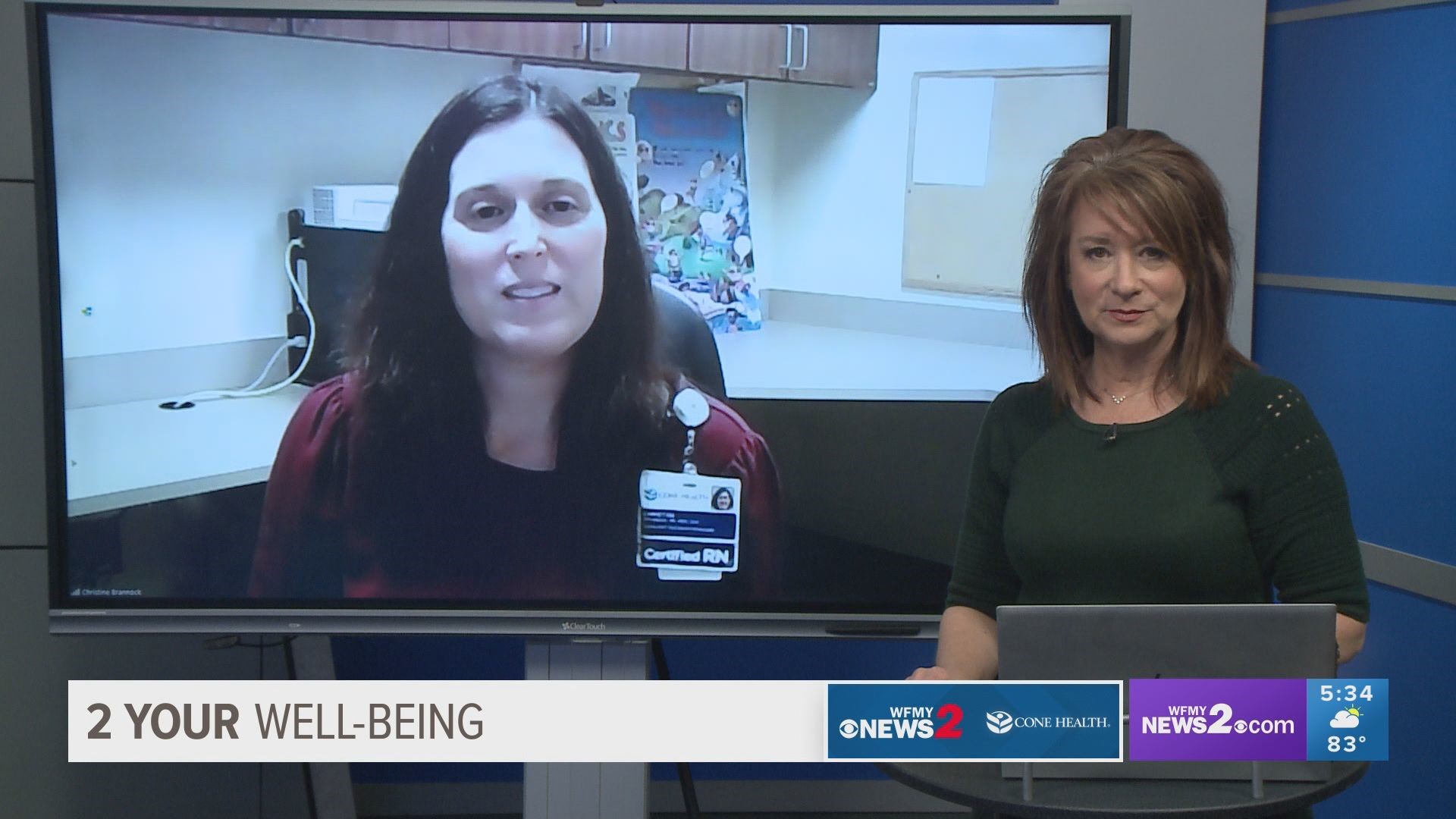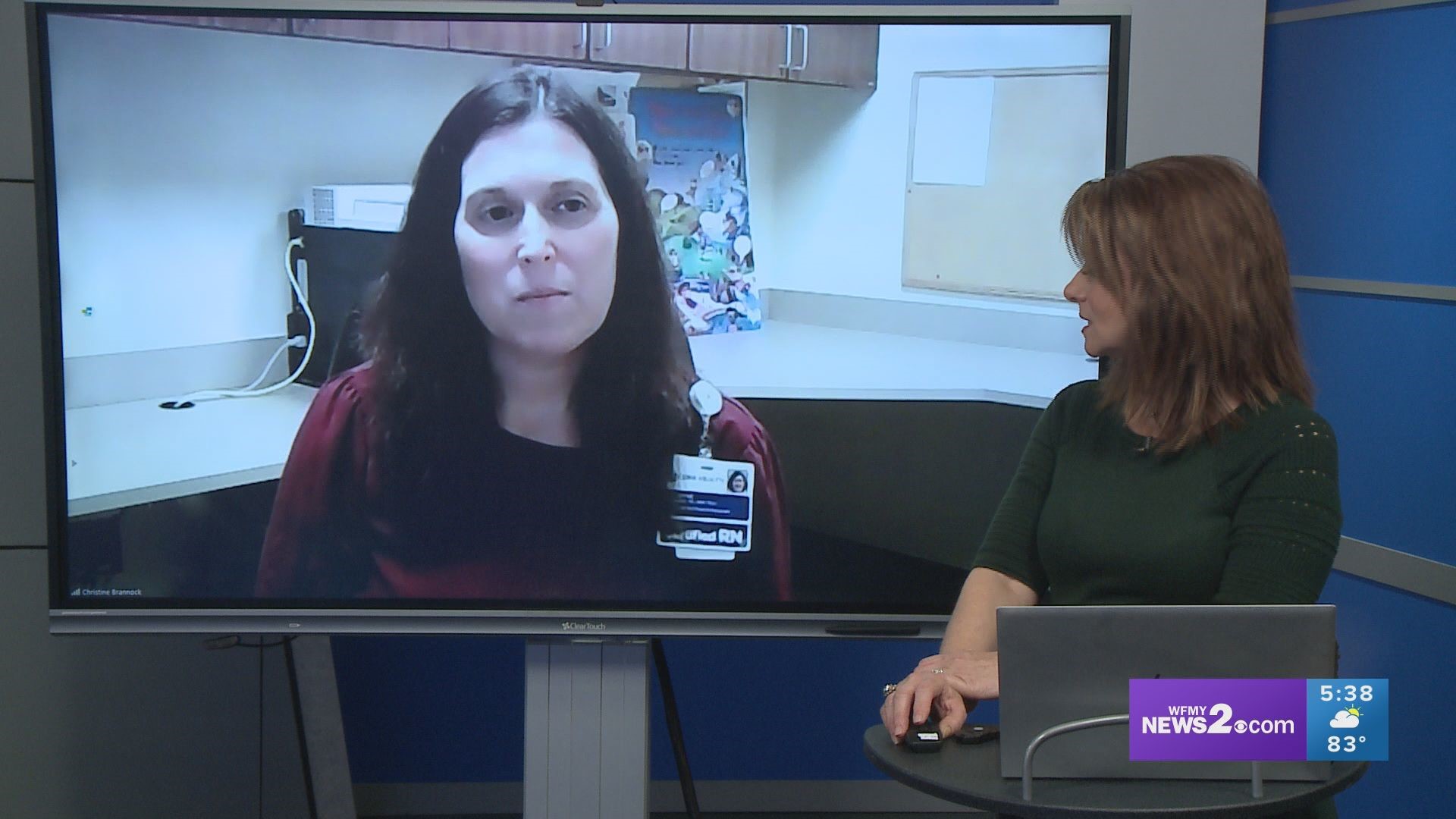GREENSBORO, N.C. — Every first Monday is "Melanoma Monday." It comes right at the start of Skin Cancer Awareness Month.
Skin cancer is the most common form of cancer in the United States. It impacts people of all ages and races.
On this 2 Your Well-Being, we talk with Christine Brannock, the Oncology Outreach Manager at the Cone Health Cancer Center. She shared warning signs and tricks for protecting yourself.
Brannock said to follow the rule of 30 when it comes to sunscreen. Apply it 30 minutes before going outside, and use sunscreen with at least 30 SPF.
Brannock said the amount of protection correlates with how high the SPF is and you should take note of it before applying.
- A sunscreen with 15 SPF blocks out 93% of UV rays.
- A sunscreen with 30 SPF blocks about 97% of UV rays.
- A sunscreen with 50 or higher SPF will block out 99%.
Brannock said a shot glass-sized amount of sunscreen should be enough to cover most people's entire body. She said take your time with spray sunscreens. Most people miss spots.
Brannock urged people to be mindful of the color of their clothing. She said lighter-colored clothes don't always block the UV rays, and people can get sunburned through their shirts. Brannock said a good way to test your clothes is to hold them up to the sun and check if you can see through it.
Brannock said you know your skin best, so you should check it regularly to see if something's off. She said doctors evaluate skin growths using the ABCDEs.
- A stands for asymmetry. Moles are typically perfectly round. If one side is larger than the other, she said it could be a sign of something more serious.
- B stands for border. Brannock said if a growth looks jagged on the edge, it's best to get it looked at.
- C is for color. Moles are usually some shade of tan or brown. Doctors will check to make sure it doesn't have a variation to it that could represent something more serious.
- D is for diameter. Brannock said moles are usually about a quarter of an inch.
- E stands for evolving. She said it's important to check to see if it's getting larger or looks worse.
Brannock said Cone Health will host a skin cancer screening event on June 6 at the Alamance Cancer Center. Registration is required. Call (336) 832-0849.


